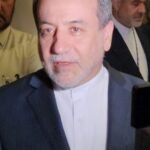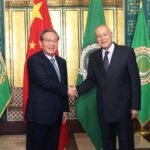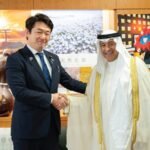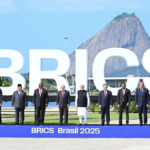Sitemap
Saturday, 12th July, 2025
Login
About Asian Telegraph Qatar
Asian Telegraph Qatar, led by veteran journalist Ashraf Siddiqui, is a trusted news platform focused on Qatar’s contributions to global peace, economic growth, education, and youth development.
Featuring insights from international journalists, it covers local and global events in business, culture, sports, and more, offering readers balanced perspectives on both Qatar and world affairs.
Contact Details
- PO Box: 20927, Doha City Qatar
- Tel: +974 33279600
- Fax: +974 44372909
- info@asiantelegraphqatar.com
- www.asiantelegraphqatar.com











